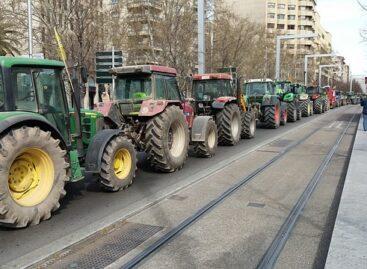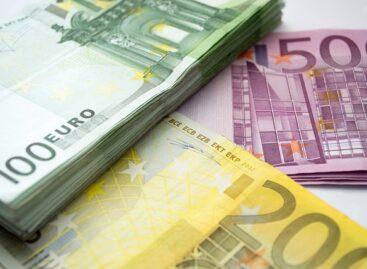Green deal is not dead, Czech agri minister states ahead of EU Presidency
The Green Deal must remain a key priority of the agricultural sector in spite of the war in Ukraine, according to Czech agriculture minister Zdeněk Nekula, who is preparing to take over the reins as chair of the EU Agrifish Council in July.
“We cannot focus all the time on increasing the production but we have to add other aspects, the environment and other areas,” the minister told journalists in a press briefing on Wednesday.
“Basically speaking, we cannot resign from the Green Deal. The Green Deal is not dead,” he emphasised, adding that “if we want to eat healthy food, if we want to drink pure water, we have to change our approach and the way we perceive our nature, our landscape”. For example, the minister, who is also an avid beekeeper, said he was a strong supporter of the EU’s ambition to see 25% of agricultural land farmed organically by 2030, adding that the Czech Republic will focus on tools that help increase demand for organic produce, such as via green procurement for schools and public canteens.
However, he conceded that although the goals of the Green Deal must remain unchanged in the long term, it is “nevertheless of imminent importance to react to certain things”.
“We have to see what is the current situation, we have to see the war in Ukraine related to the impact of, for instance, soaring prices of energy of fertilisers and other commodities,” he said.
For Nekula, a good example of tackling both food security and nature management aspects come from precision farming, through which farmers would be able to reduce the volume of inputs such as pesticides and maintain production levels.
Despite reserving staunch criticism for the EU’s focus on food production in the face of the Ukraine war, the minister said he did not support the idea of slashing VAT rates on foodstuffs. This idea was put forward by the Commission in its communication on food security as a way to help people cope with skyrocketing food prices.
“Right now we should not move the VAT around foodstuffs too much to ensure the stability of budgets,” the minister said.Instead, EU countries should focus on providing “targeted assistance” to help the most vulnerable populations, he said.
While the priorities of the Czech EU Council Presidency are yet to be officially presented, the minister gave an indication of some of the key themes during his time at the helm of the AGRIFISH Council, which will coincide with the European Commission’s proposal on front-of-pack labelling, expected towards the end of the year. Asked for his opinion on the controversial issue, Nekula reserved strong criticism for the currently most widespread system, known as the ‘Nutri-score’.
“I am not enthusiastic about the traffic light system of the Nutri-score,” he said, adding that he instead prefers the ‘Nutri-inform’ approach taken by Italy, which he called “much better”.
Asked about this stance, the minister voiced some criticism that echoed Italy’s main stance and mentioned, for example, that if you “compare olive oil and coke applying this Nutri-score approach, paradoxically, coke would be more healthy than olive oil.”
Source: euractiv.com
Related news
Avian influenza has appeared in a new farm in Csongrád-Csanád County
🎧 Hallgasd a cikket: Lejátszás Szünet Folytatás Leállítás Nyelv: Auto…
Read more >UBM may continue its international expansion
🎧 Hallgasd a cikket: Lejátszás Szünet Folytatás Leállítás Nyelv: Auto…
Read more >Serbian farmers block roads to protest cheap imports
🎧 Hallgasd a cikket: Lejátszás Szünet Folytatás Leállítás Nyelv: Auto…
Read more >Related news
MBH quick analysis: Tourism will continue to soar this year
🎧 Hallgasd a cikket: Lejátszás Szünet Folytatás Leállítás Nyelv: Auto…
Read more >








